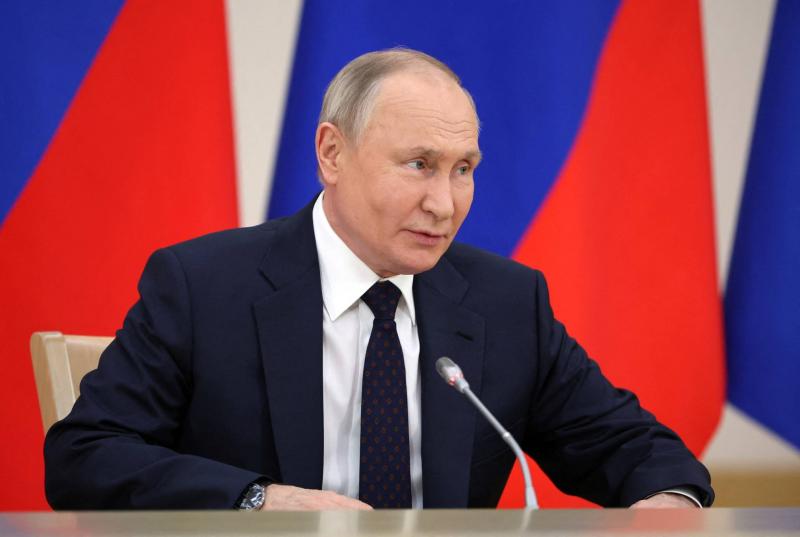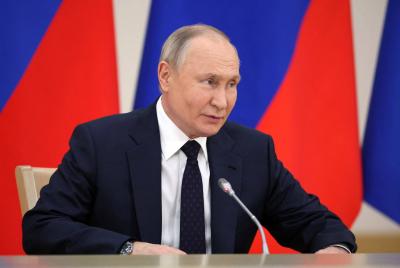Russian President Vladimir Putin stated on Thursday that "the goals of the Russian special military operation in Ukraine have not changed," adding that "there is no need to mobilize more reserve forces in the army." During his annual press conference, he warned, "Either we agree on peace in Ukraine or we will solve the problem by force." He emphasized that "there will be peace when we achieve our goals," noting that "about 486,000 people have volunteered to serve as contract soldiers so far, in addition to 300,000 who were called up last year," stating that "the flow is not decreasing."
Vladimir Putin revealed that "annual inflation may approach eight percent in Russia this year," and announced that "Russian forces are reinforcing their positions on almost all front lines of the war in Ukraine." He clarified that "Ukrainian elite forces have incurred human losses during attempts to gain a foothold on the eastern bank of the Dnipro River in the Kherson region." Putin stressed the "necessity of maintaining United Nations mechanisms, such as the veto power for permanent member states of the Security Council."
In response to a question from a Turkish journalist about the humanitarian crisis in Gaza, Putin expressed hope to meet with Turkish President Recep Tayyip Erdoğan in early 2024. In another context, he indicated that he "supports the participation of Russian athletes in the upcoming Olympic Games in Paris in 2024 but called for a review of the conditions set by the International Olympic Committee for Russian participation."
This comes on the eve of a widely expected decision by the central bank to raise interest rates to 16 percent to curb rising prices. Most analysts in a Reuters survey predict that the Bank of Russia will raise the key rate by 100 basis points to 16 percent on December 15, as inflationary pressures are exacerbated by a labor shortage, increased lending, rising government spending, and a weakening ruble.




